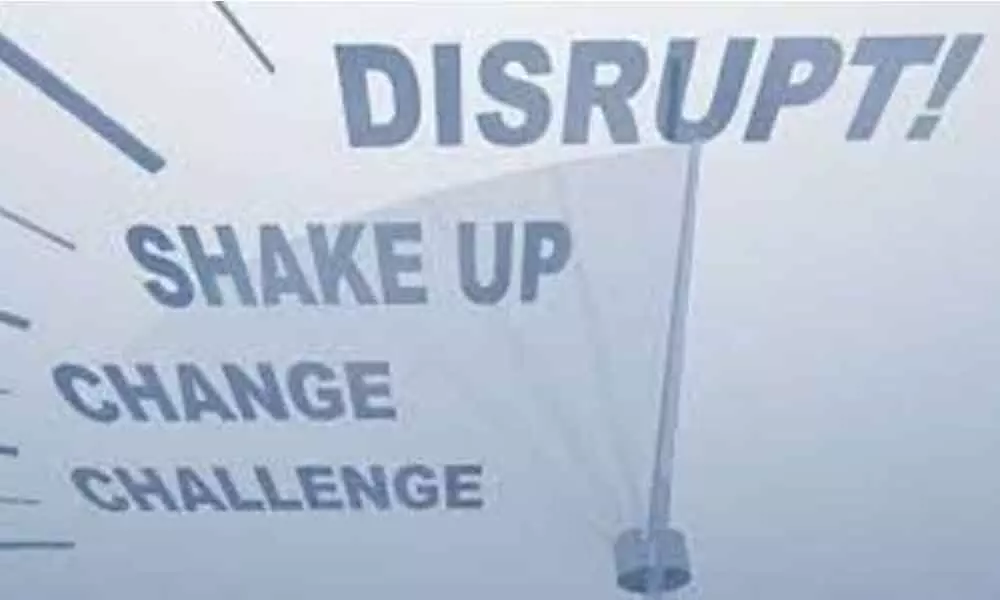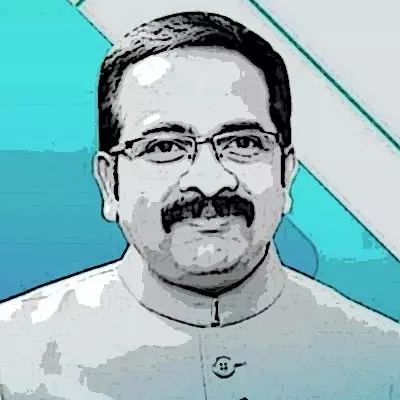Education needs massive disruption

Education needs massive disruption
If over two decades of education cannot build individuals to be mentally congruent and socially responsible for their words and actions, especially at ages spanning from 12 to 20, what is that education good for? If millions of young people in this age group can’t have good eye-to-eye contact, effectively communicate, respect parents, have meaningful conversations and are drowned in addiction to chats, calls, gadgets, devices, late nights, alcohol and drugs – should this ‘new age international education’ be welcomed or disrupted?
The human enterprise on this planet is founded on active learning. All innovation, discovery and invention are triggered through profound knowledge, adventurism, curiosity and quest to upgrade the current levels of human learning. As the world moves into an unprecedented phase of technological advancement, education, too, has to transform like never before.
However, the education system has been rigid, irresponsive and stagnant to rapid changes all around. The technological, social, economic and intellectual advancement is not reflective in the current education format. I am referring to the entire body of education, from elementary to doctoral programmes. The overall learning objectives, quality standards, knowledge dissemination approach, method of assessment, application focus, technology adaptation, demographic value proposition and the quality of instruction are outdated and irrelevant to present and immediate future demands of the human enterprise.
There are highly accomplished achievers who rose from the same education system and are making impact globally. However, these are very few and rare. It clearly establishes that excellence is rare and is an exception, rather than a norm. This well-established faulty education system is churning millions of mediocre outputs year after year for many decades. The ratio of super successful against mediocre must be easily 1:10 million. Should these numbers continue on?
The quality test is simple. The society of a nation reflects the quality of education in that nation. The social ills, disharmony, conflicts and complexity of human relationships in a society are quite exhibitive of the quality of education. The cognitive and emotional competence of individuals, the simplicity or complexity of inter-personal relationships, standards of social behavior, emotional health of personal, family and social relationships, highlight what education in a society or a nation is producing.
The range of professional skills, competence delivery, work ethics, work culture, professionalism, result-orientation, active listening, careful communication and productivity are real measures of overall education outcomes in a nation.
Preservation of indigenous culture, civilisational knowledge, traditions, best-practices, history, heritage and humanity is the primary obligation of an education system. If we test any nation's education system on the basis of all the above variables, it is not very hard to assess if that education system is working towards building the nation or destroying it.
I have a long list of disruptions which are essential to transform our education system to be an enabler of human spirit, instead of being a disabler (which it is now). However, I can only highlight a few in this column.
Redefine education
Objectives of education need to be redefined. They need to be specific and focused on knowledge dissemination, concept clarity and human skilling. The bands of learning need not be grade-driven. The learning tracks need to be focused on individual choices guided by student's personal competence, measured using cognitive assessment and psychometrics, instead on rigid norms laid down by schools / colleges or regulatory bodies.
The big question is 'What is education for?' The answer can give over 100 dimensions and reasons to redefine 'Education.' For example, if education is just for employment, what about empowerment? What about emotional congruence? What about responsibility? What about ethical behavior? & What about 100 other outcomes education must drive.
If the current education system is incapable of delivering these essential attributes in an individual even after 10+2+4+2 years, what is it good to be educated?
Align with developmental stages
A small part of my big solution for this century old mess is to align education along the natural human developmental stages. The formative years are from 0 to 8, with 4 to 8 being an age with highly acute sensory perception. That should be the age to drive all core values, sensory skill, cultural, cognitive congruence and emotional congruence linked education. That is when the core values like respect, honor, truth, responsibility, regulation, curiosity, adventure and cultural skills like music, dance, languages, singing, painting and other key learnings can be easily taught.
Our education system is founded and executed by colonial masters for hundreds of years to produce slaves. Should we continue to follow the same system, even after the masters let us free? Who should we blame for the mass-customised, rigid, stereotypical education which mostly produces rude, disrespectful, irresponsible, disloyal, abusive, addictive, defiant and deviant young people across the nation? I don't blame generation after generation of irresponsible young individuals, who would have lost great opportunities of good life. It is the current generation of parents who need to be held responsible for not demanding massive change, as they visibly see and experience in every single family, what products the school and college education is producing today.
I am not generalising the outcomes, there can be exceptions. However, rare exceptions don't count much, when the numbers are in such large proportion and the outcomes are visible and experienced all over.
Youth, being an asset, can't be turned into a liability for the nation just because we all choose to look the other way and use helpless phrases like 'this is how its is,' 'it's the internet generation,' 'they will be better as they age,' 'they are smarter than us' and etc. There is not a single family with teenagers who don't have serious challenges of regulating even fundamental social behaviors in the current times. Is this normal? Was it like this in the past one, two or three generations? What's new now? Is this the outcome of great education standards? Or have we fallen ignorantly low for western stereotypes set for age, phase and gender?
If over two decades of education cannot build individuals to be mentally congruent and socially responsible for their words and actions, especially at ages spanning from 12 to 20, what is that education good for? If millions of young people in this age group can't have good eye-to-eye contact, effectively communicate, respect parents, have meaningful conversations and are drowned in addiction to chats, calls, gadgets, devices, late nights, alcohol and drugs – should this 'new age international education' be welcomed or disrupted?
(The author is the Chief Spokesperson of BJP and an organisational strategist)









